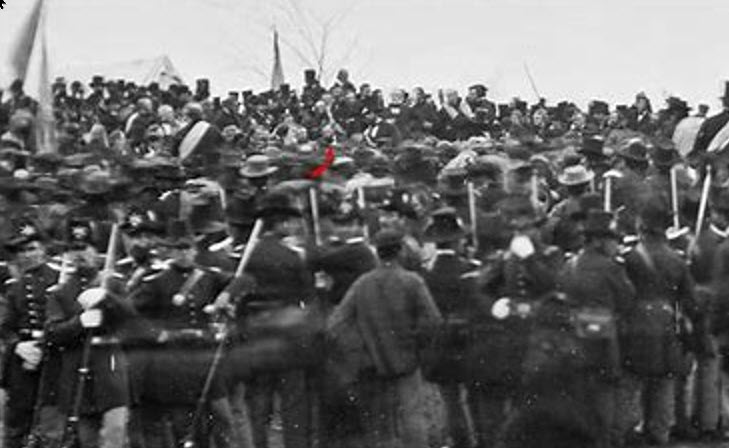
Most Americans have been drinking the Kool-Aid, me included. But, Kool-Aid is basically a child’s drink. It’s OKay to grow up and see something closer to the truth. Abraham Lincoln is praised for his Gettysburg address. Many people died in the Gettysburg battle. So, Lincoln gives us this spectacular oratory, which is taught to us in our government-run schools. We put Lincoln on a pedestal. His words are magical.
H.L. Mencken was a well-known journalist and satirist during the first part of the last century (1880-1956). From what I can tell from his writings he doesn’t like Kool-Aid. He had this to say about the Gettysburg Address (taken from Prejudices-Third Series, Five Men at Random, The Library of America, page 400):
.. . . . . .The Gettysburg speech is at once the shortest and the most famous orations in American history. Put beside it, all the whooping’s of the Websters, Sumners and Everetts seem gaudy and silly. It is eloquence brought to the pellucid and almost child-like perfection – the highest emotion reduced to one graceful and irresistible gesture. Nothing else precisely like it is to be found in the whole range of oratory. Lincoln himself never even remotely approached it. It is genuinely stupendous.
But let us not forget that it is oratory, not logic, beauty, not sense. Think of the argument in it! Put it into cold words of everyday! The doctrine is simply this: that the Union soldiers who died at Gettysburg sacrificed their lives to the cause of self-determination— “That government of the people, by the people, for the people,” should not perish from the earth. It is difficult to imagine anything more untrue. The Union soldiers in that battle actually fought against self-determination; it was the Confederates who fought for the right of their people to govern themselves. What was the practical effect of the battle of Gettysburg? What else than the destruction of the old sovereignty of the States, i.e., of the people of the States? The Confederates went into battle an absolutely free people; they came out with their freedom subject to the supervision and vote of the rest of the country—and for nearly twenty years that vote was so effective that they enjoyed scarcely any freedom at all. Am I the first American to note the fundamental nonsensicality of the Gettysburg address? If so, I plead my aesthetic joy in it in amelioration of the sacrilege. [emphasis added]
I think Mencken’s understanding of the Gettysburg address is a little closer to the truth.
(Note: Drinking the Kool-Aid refers to someone who blindly follows someone else. In this case accepts the government’s explanation of history in our education system. The term is based on a tragedy of the followers of Jim Jones who died from drinking poisoned Kool-Aid back in 1978.]
